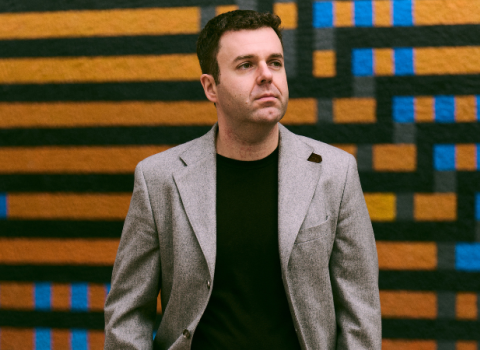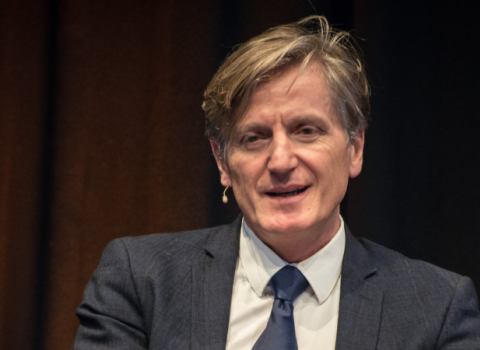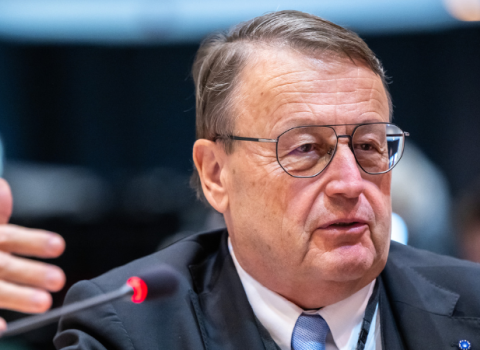Looking back at his three-year term as chairman of the European Institute of Innovation & Technology (EIT), Martin Schuurmans has mixed feelings. For sure, he is proud of the three Knowledge and Innovation Communities (KICs) that are now up and running. But he feels that they could have been set up faster and have achieved even more by this stage.
“We have built up the financial and legal KIC structures from nothing, we have excellent CEOs in place, and we’re driving business entrepreneurship. So on the one hand, I’m quite happy,” Schuurmans, told Science|Business. “We have also taken three years. I have this feeling we could have gone even faster. The world is not standing still.”
The KICs’ brief is to come up with new ways - in their respective areas of climate change, energy and information technology - for industry, research and academia to work together in cross-border projects. They had to break new ground in establishing a model for collaboration, devising a legal structure that supports how the activities are co-located in several countries.
Of course, all these discussions and decisions took time. And the European Commission rules by which the EIT is bound added to the complexity. As a result, drawing up contracts, signing agreements and getting the money flowing took longer than many would have wanted.
“If we do it again, in 2014, I’m absolutely convinced we will have simpler contracts, both the contents of the contracts and the procedures to put the contracts in place,” said Schuurmans, a former executive vice president at Philips Research/Philips Medical Systems. “We absolutely need to and will learn from what we have been doing in the last three years.”
The way in which the projects are financed – with up to 25 per cent of the total cost coming from the EIT and the remainder from the participants – can be a double-edged sword. On the one hand, the EIT acts as a seed investor, creating the financial stimulus to get the projects off the ground. On the other hand, with public money comes the burden of public accountability and the inevitable bureaucracy.
Delivering results that have an impact
“Having checks and balances doesn’t mean that the KICs can’t move forward quickly,” said Schuurmans. “But public money is an extra burden. It is the task of the headquarters and the KICs and the Commission to seek ways to make this lighter and lighter.” Schuurmans believes this is something that will happen. “It’s like a control-based society moving towards a trust-based society. But trust has to be earned,” he said, In the case of the KICs this means delivering results that have a real impact.
Measurable targets, such as the number of successful start-ups generated, or the number of ideas that get to market, are crucial, according to Schuurmans. At the same time as craving ambitious results, it is important to be patient. “To start with they’ll be simple targets, and over time they’ll move closer to what a world-class institute aspires.”
There has been a swifter return on investment in the Masters, PhD and post-doc programmes that the KICs have set up, Schuurmans says. “They’re fantastic. It’s very encouraging, as they are a very important step to get entrepreneurial people.” He’s also pleased with other developments, such as the Climate KIC’s success in attracting funding. “You see the first small things emerging. Would I like to see more? Of course. Will we see more? I’m sure we will.”
Mary Ritter, CEO of the Climate KIC agrees about the slow pace of affairs. Most of last year was spent doing the groundwork, she says, “But this year we’re really beginning to blossom.” In retrospect, the difficulties of getting things off the ground could have been anticipated, according to Ritter. “We were naive thinking it would be quite easy. It was like starting from year zero, creating an entire institution from scratch.” As for the frustrations of dealing with EU bureaucracy, Ritter said, “I don’t think it’s solved, but we have already made progress and there are further promising signs. Everyone is looking to see whether the simplification measures under Horizon 2020 will be effective and allow enough flexibility. It’s very much watch and see,” she said.
Making an innovation impact
As the EIT seeks to make “a real innovation impact” it has called for a massive increase in its funding, from €309 million in the current financial cycle, to €4 billion in 2014–2020. The increase would support the three existing KICs and more to be launched. The EIT has made a case for nine more KICs, with three to be launched in 2014, three in 2017 and a further three in 2019.
Schuurmans says this is a realistic approach with a realistic budget. “Combining business, research and innovation is a unique approach that can be very successful. But you need an appropriate amount of investment to back it up,” he said.
In terms of advice to future KICs, Schuurmans says the key thing is finding the right chief executive officer (CEO). “It’s not a committee or an advisory board leading the show; it’s the CEO.” Schuurmans was also keen to emphasise that the EIT is not programme funding and that it shouldn’t be used like the Framework Programme. “It’s not a case of completing programme or project deliverables and then you’re done; it’s about creating successful innovative communities, and new entrepreneurs being born,” he says.
On advice to his successor on dealing with the EU monolith Schuurmans says, “Whether you like it or not the money is public money. Accept this and work with the EIT to simplify the processes on public spending.”
It is also critical to disseminate the achievements of the KICs and the EIT to the rest of the EU. Perhaps most importantly, in Schuurmans’ opinion, it is necessary to keep the focus on outputs and results.
Looking back over the ups-and-downs and bureaucratic longeurs of the last three years, Schuurmans says, “We’ve done a decent job, but there is much more that needs to be done.”
That task falls to his successor Alexander von Gabain, the new EIT Director José Manuel Leceta - and of course - the KICs themselves.





 A unique international forum for public research organisations and companies to connect their external engagement with strategic interests around their R&D system.
A unique international forum for public research organisations and companies to connect their external engagement with strategic interests around their R&D system.